Horse slaughter is not the problem. It is the result of the problem.
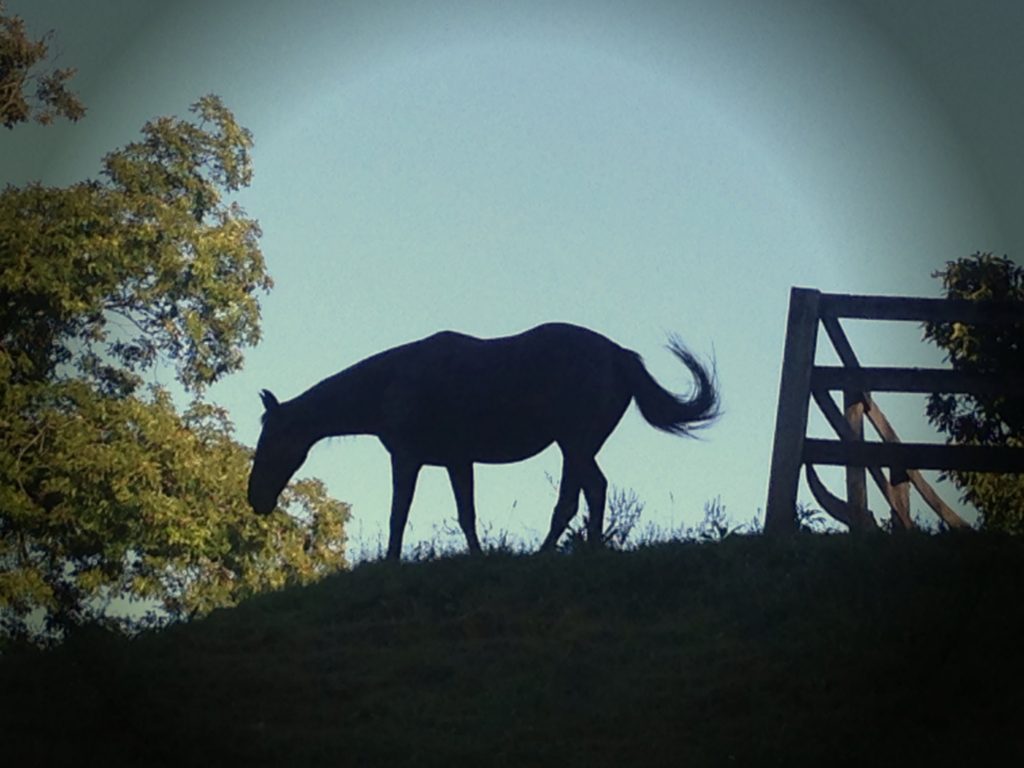
The problem is that there are too many unwanted horses in our country. I repeat for emphasis: The real problem is that there are too many unwanted horses in our country!
Horse slaughter is the result of that problem. The question I have is, what are our options to solve the problem? I will discuss some options further in Part 2 of this post.
Should we Ban Horse Slaughter?
There are many reasons to end horse slaughter, and I will discuss that further in Part 2 of this post.
I believe ending horse slaughter was the goal and expectation of the people who advocated to ban the practice in the USA. And in 2006, the laws governing horse slaughter in the USA were changed to prohibit the practice. Okay, it’s not clear that the laws passed, but by 2007 the last three slaughterhouses in the USA closed. Success!
Did Banning Slaughter Solve the Problem?
Success? Certainly these closures were the goal of well-meaning folks who genuinely believed they were helping precious equines avoid a painful, terrifying end.
These people love equines and wanted to solve a problem. But they didn’t realize that slaughter is not the problem. So the problem didn’t go away when the U.S. slaughter facilities closed. The problem is still the never-ending supply of horses that are no longer wanted – for whatever reason.
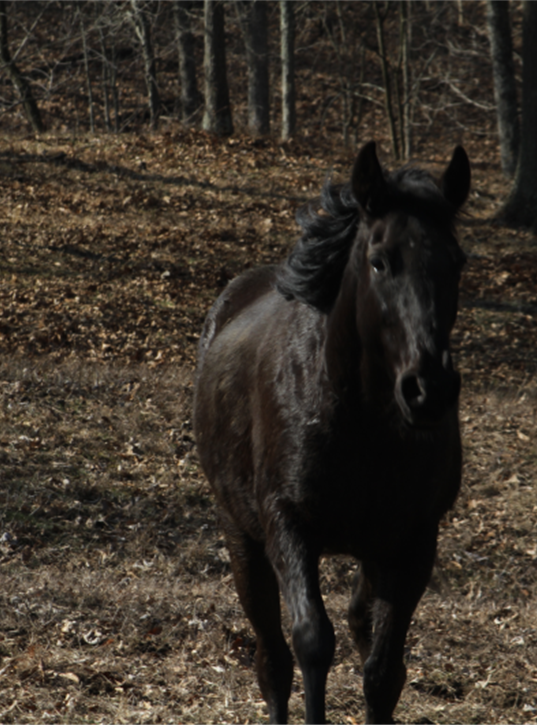
How many horses are still being slaughtered every year?
It is estimated that an average of 100,000 horses per year are sent across US borders to slaughter facilities in Canada and Mexico.
Where do an extra 100,000 unwanted horses come from each year?
1. Commercial breeding operations. These are businesses and need to be profitable. A mare that doesn’t conceive is of no value – worse, is a liability. She is taking up space and eating resources. She needs to go, as does any other horse not able to make the business a profit.
2. “Backyard breeders” – who have a perfect mare and just know they can sell any offspring she has. They may even get their own stallion so they don’t have to pay stud fees. And then a few more mares. Usually not sustainably profitable, some of these operations continue to feed the auction houses – directly or indirectly.
Sometimes these folks want a replica of their favorite horse to love and raise. The same folks often can’t resist breeding the mare again and again.
I recently learned that our tax laws promote back yard breeding. Real estate taxes are lower in most cases, and the IRS deductions and benefits are substantial for breeding farms. So, there are more incentives to breed more horses. Where do at least some of these horses end up? At auction.
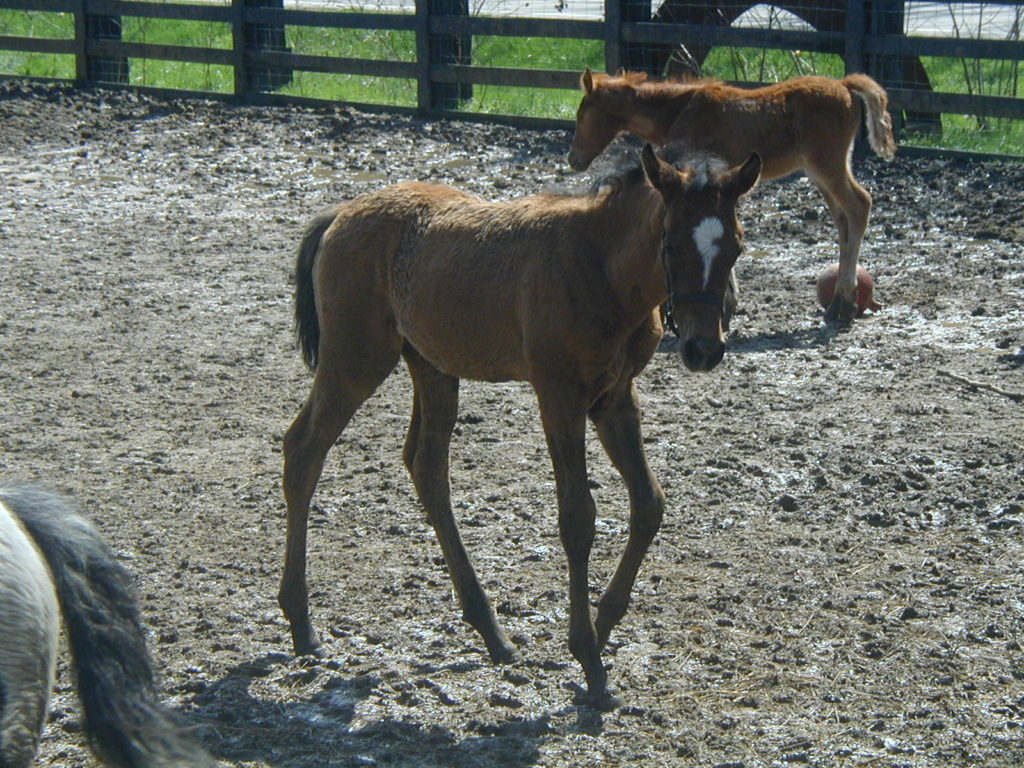
3. People who love babies of any kind. They couldn’t resist buying that cute little filly, but never trained her, or got her any training. She eventually ends up as a spoiled brat and a money pit. Of course, no one wants to buy her because – well, she’s now a full grown brat. She can’t be ridden and she bites, kicks and crowds humans to get her way.

4. The horse “industries”. Including, but not limited to: racing, rodeo, polo, rental stables, show barns, show circuits, circuses, carnivals, pharmaceutical supply farms, carriage businesses, seasonal camps and schools. Any operation that makes money from horses, is going to have culls or throw-aways. It is a business, and if the horse can’t produce income, it needs to go away. (This is true for dogs as well, but that is a whole different post.)
5. Families who buy a pony or horse for a child without planning for the future. Believe me, I think buying your horse-crazy daughter or granddaughter should be mandatory. I certainly tried (though I failed) to convince my own parents that only horrible parents refused these requests.
But far too many times, that horse-crazy girl becomes a boy-crazy teenager. And Dad realizes he is spending good money to board a horse that hasn’t been visited in months. Or that young rodeo cowboy turns his sights to dirt bikes and cars. And Mom realizes that she is now the one shouldering all the barn chores to care for Junior’s horse. Since most of their circle of friends are in the same boat, the horse or pony goes to auction.
They love the equine – he is part of the family, after all. But it is so easy to rationalize. “Surely someone at the sale will see what a perfect horse this is. He won’t go to the meat buyers. He will get another good home.” Unfortunately – the pony hasn’t been ridden in a year. Or the teen has rodeoed the horse until it only knows to gallop and rear. The horse has been ignored for so long that he no longer remembers proper ground manners.
There are far less homes available than there are horses at the auctions. Chances are, that family did not go to an auction barn to find their child’s perfect pony, so why do they think other parents will?
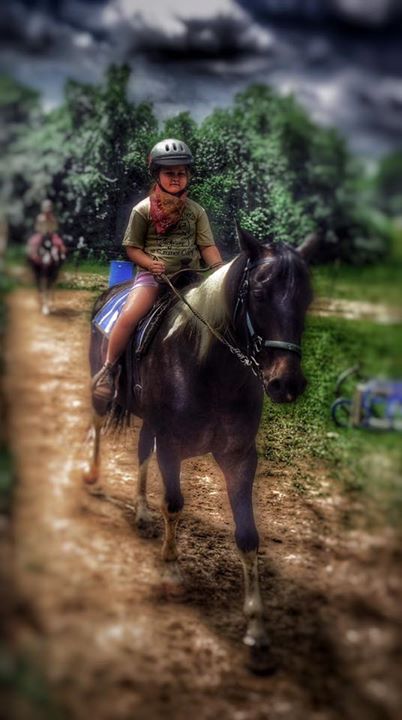
6. The horse dependent cultures, such as the Amish. There are some of these folks who take excellent care of their animals – just as some farmers take excellent care of their tractors. But as in any group, some sadly do not.
I’m know I am generalizing here, so I expect lots of comments about Amish who are exemplary caretakers. Who retire their old horses to pasture or humanely euthanize them on the farm. But spend some time in any of the larger communities. You will see some who treat their horses more like tools than creatures that experiences physical pain and discomfort. A horse is not the same as a tractor.
I often see the buggy horses in these communities tied up outside a market, with the check rein on their harness still holding their heads high. That horse can’t stretch his neck or bite at a fly or scratch a leg, or even yawn properly.
Many of the roads these horses travel are paved, and the horses are shod (another post topic). This subjects them to road founder or lameness problems from the constant impact. When these horses are used up, they go to the auction.
In fact, many of the horse auction barns in our country are near large Amish communities.
7. People who use up one horse after another. These people claim to love to ride their horse. They may belong to a club that organizes group rides – especially on the weekends.
Many don’t have much time to ride, so their horse sits in a stall or small pasture 90% of the time. Then once or twice a month (or less), they load them up to go for a ride with friends all weekend. Often their horses are one of the gaited breeds, because the ride is smoother and “I can sit that gait all day!”
These horses are not kept in condition and are not physically up to the task of carrying a rider all day. This would be like you sitting around day after day, then one weekend a month trying to run a marathon!
These are the folks who should buy a good four-wheeler for their occasional rides. And a horse is not a four-wheeler.
Sadly, many of these horses break down at young ages. They develop a multitude of physical problems through no fault of their own. So, they are taken to the sale barn, are led limping through the sale and are bought by the meat buyer. And the owner moves on to the next horse, and then the next.
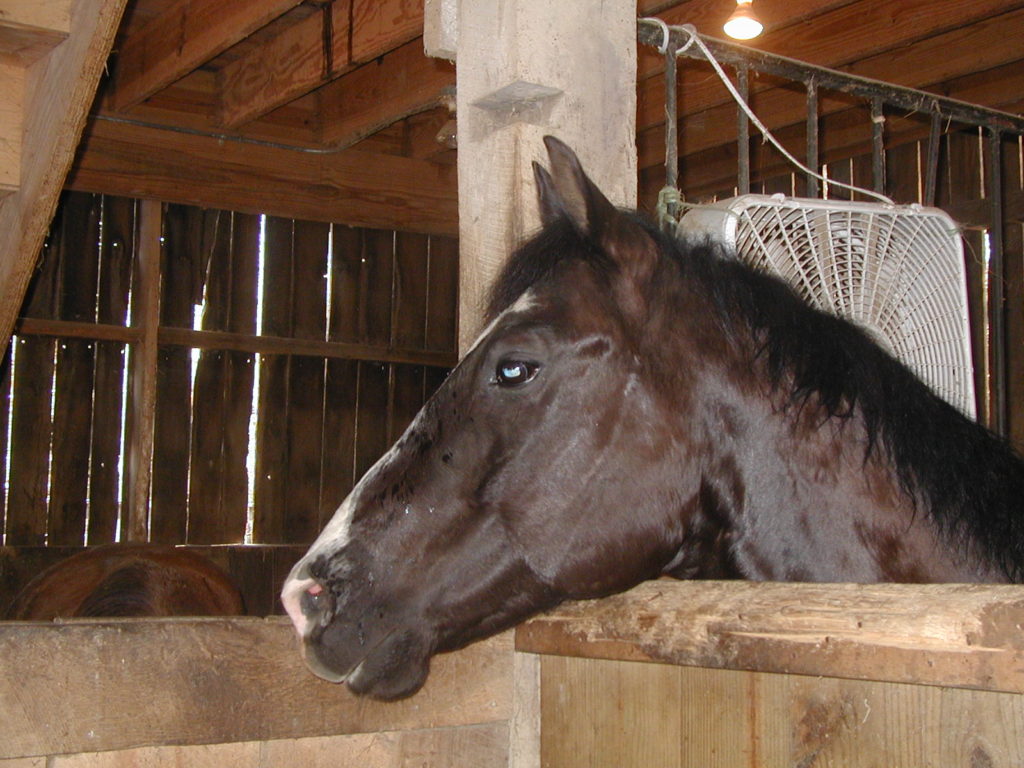
8. People who don’t care. People who, for whatever reason, ended up with a horse, or pony, or donkey. Maybe it belonged to a family member, or a neighbor. And this guy had a fenced field and one thing led to another and it just happened. Or he had other equines and then more came along. Because, people are trying to find a place for their unwanted horses.
Or, they were her husband’s horses and now there is too much to do to take care of them. His old junk tractors are also sitting out in the field, rusting away. But a horse is not a tractor. If they are lucky, they may get sent to a rescue. If not – yep, to the auction.
And if they aren’t sent away, they could stand in the field until there is not enough food to sustain them. And they grow hungry and skinny and suffer more than they deserve. Until someone finally convinces local authorities to act and remove the animals. We have all seen the pictures on television – starving animals rescued by the animal police. And some of these horses are rehabilitated and found good homes. That’s what we see on TV, anyway.
Others are too far gone and are euthanized. But some are fed into the endless supply of horses at auctions.
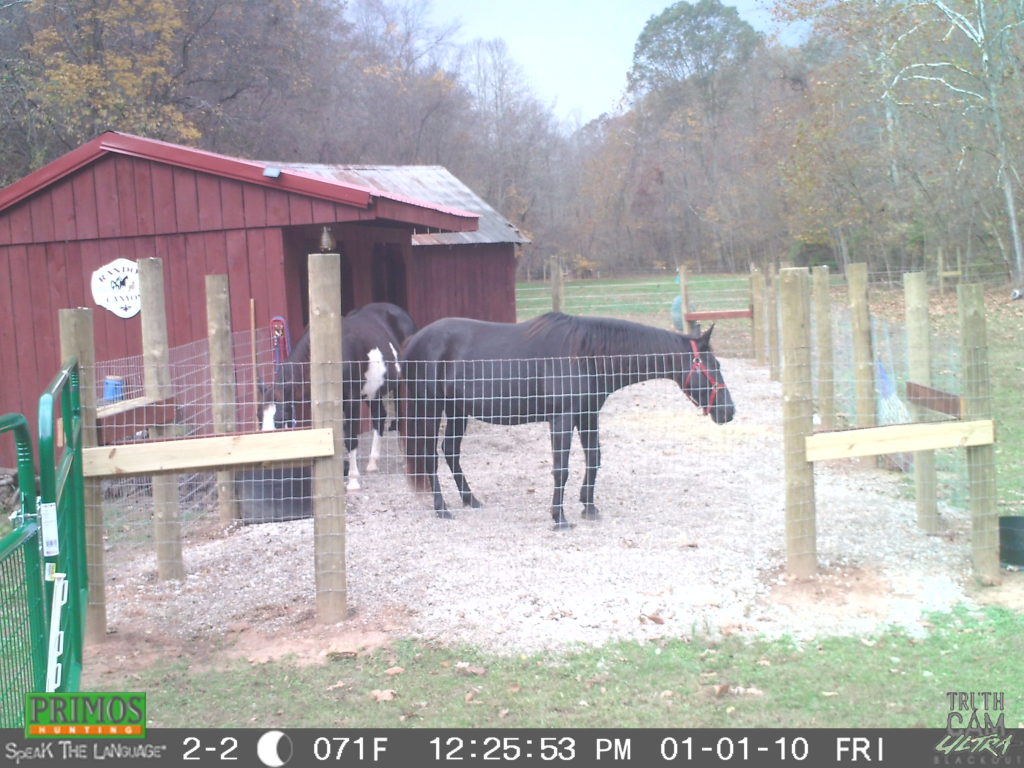
9. People who do care and react emotionally. They donate money to brokers to save horses from slaughter. A scam industry of sorts has developed around the auction house horses.
To roughly describe it, a broker (a meat buyer, a flipper, or a scammer) will buy the horses, then offer the opportunity to save them from slaughter. Sometimes people raise the funds and agree to take the horse. The horse is not evaluated for physical or training issues. The buyer usually must pay for board during quarantine, then shipping costs. And they sometimes receive a horse that is not usable, and not what they expected.
Sometimes the broker raises funds to redeem a horse, then turns around and sends it to another auction. These brokering operations are generally online and on social media. They address their appeals to motivate people to react emotionally. “Save this horse or it ships” is a common phrase, and there are always deadlines involved.
And, where there is money being raised there are people ready to take it. Meanwhile, many of the horses disappear back into the auction funnel, or worse.
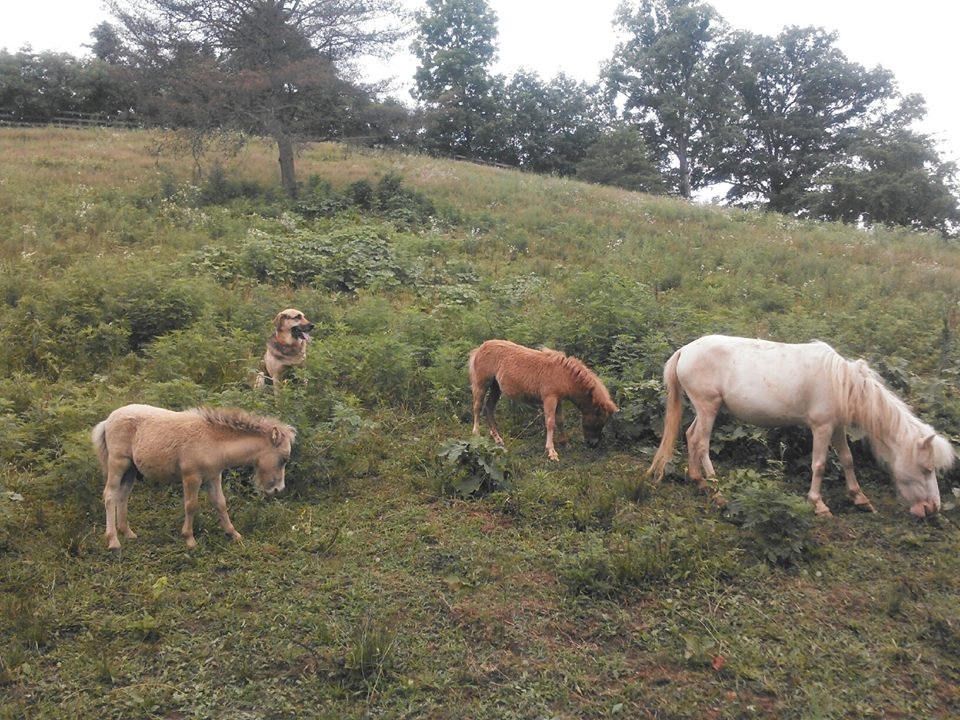
10. The scammers and flippers and even thieves. Every rescue warns people about putting an ad anywhere for your “free horse”, or “horse free to a good home.” There are people out there who will take your free horse and promise to keep it and love it forever. Then they turn around and resell it, or worse, sell it at auction for a few hundred dollars.
11. Injured, defective, damaged, broken. This describes some of the unwanted horses that find their way to auction.
12. People who move. They get a job transfer or relocate to find work and can’t find a place for the horses. Or they are getting older and decide to move south, or at least into town.
13. People whose financial situation changes. It may be retirement and a fixed income. Or the loss of a spouse or partner and a transition to a single income. It may be a break-up or divorce and a change to a single income. Perhaps it was the loss of a job, or a serious medical issue that is draining funds as well as time and energy. Maybe the horse owner now has a child with a serious medical problem.
Suddenly the change becomes the decision driving force. The horse is an unwanted complication.
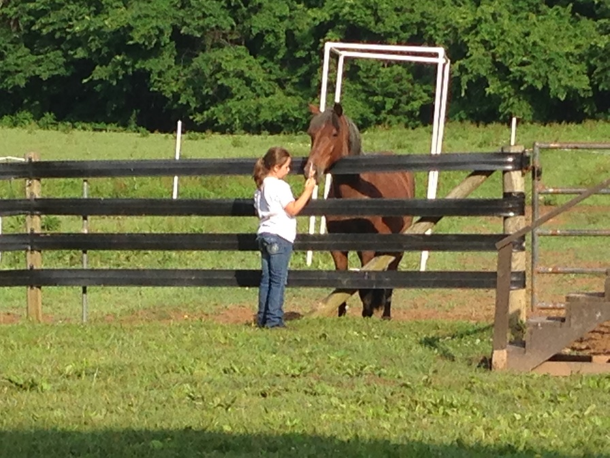
14. People willing to get $300 at auction instead of spending $500-1500 for euthanasia and cremation. I suppose many people can rationalize a lot from a cost viewpoint. And can close their minds to the thought of what really happens to good old Paint. Sure, he was a faithful trail horse for the past 10 years, but now he is too lame to ride and keep up with the other horses.
And the owner doesn’t even have to stick around the auction to see the end result. They tell themselves that the horse went to a kind family that wanted a broken-down trail horse to decorate their pasture. They try to never think about the torture of that trip to Mexico or Canada.
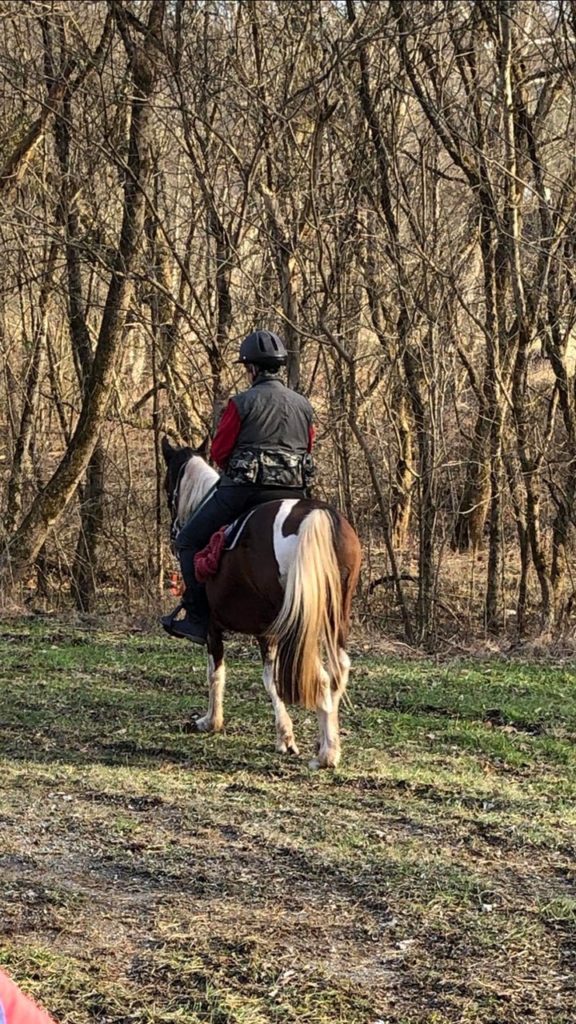
15. People who don’t have workable end-of-life options for their horses. In many areas, strict regulations and high costs have shut down large animal crematories. In many states it is illegal to bury a horse, even on your own property. So, while the horse is still mobile, but showing signs of declining health, someone suggests taking it to the auction. Rationalizing that “I didn’t have any other choice,” the owner deals with guilt, but moves on.
16. Everything else. I surely did not think of all the sources of unwanted horses. Some of the wild horses in our country undoubtedly end up at auction after well-meaning buyers fail to train them or can’t keep them. What else have I missed? Please comment.
What else have I missed? Please comment, then click here to read the second part of this post.
In this first part of the post we have discussed why unwanted horses are the problem. The second part of this post discusses the potential solutions to the problem. Is slaughter a solution?
Other Posts you may be interested in:
I feel as if I could have written this. After following the local sale barn for a few months I finally broke down and bought a little old skinny pony a few weeks ago. Now I’m doctoring him and one of my horses through strangles. I still would never give him back. I read an article in Equus about 40 years ago that 80% of the backyard bred horses end up at the killers. I got into and out of the breeding business before the first foal was born.
Sally,
Thanks so much for your comment. I know this is a controversial topic, but it needs to be discussed. I am sorry your guys have strangles, but you are my hero for rescuing from the sale barn. That is very courageous and kind. Please give him a hug from me. I don’t have answers, but I am still hoping we can all make a difference. I am glad you realized the problem with breeding!
Thanks so much for stopping by!
Grandma HaHa
PS: I am just wondering if you also read Part 2 of this article. I am new to blogging and I am still trying to figure things out!